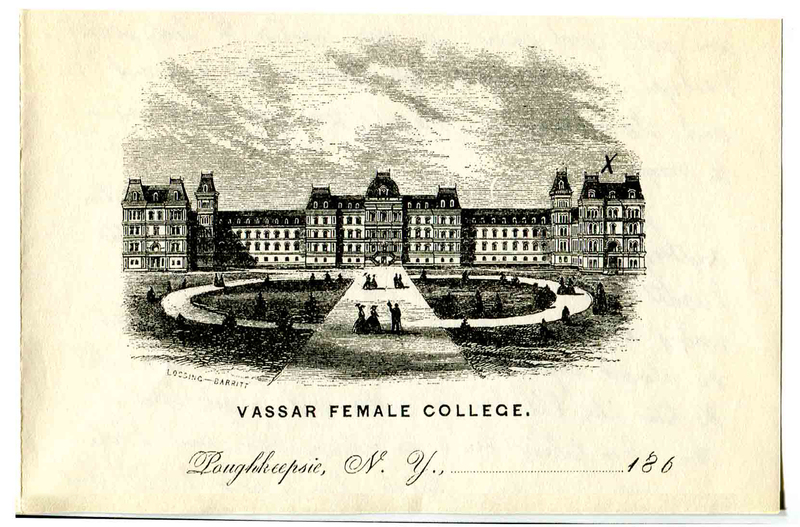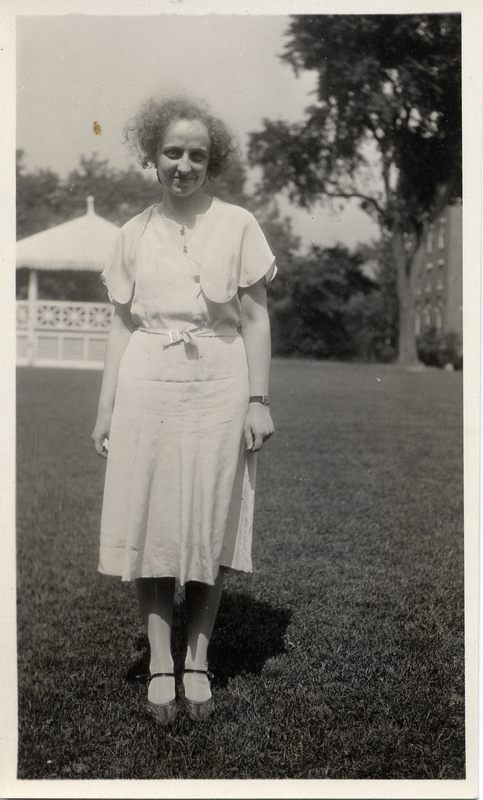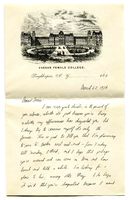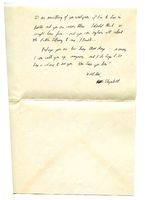Bishop and Bradley in College
I am getting as mad at the college and its
sociological chatter, though. Yesterday a friend and I
went down town to an off-color little shop and laid in
a supply of stink-bombs [...] The next big political meeting
when all the girls get up and advise us to read
the newspaper, etc. (they seem to think we don’t)
we’re going to create a riot.
—Elizabeth Bishop to Louise Bradley, 1933
Louise Bradley, who was three years Bishop's elder, must have shared her experiences of college life with her younger friend, because in one letter, Bishop asks "Oh Louise, are all colleges that bad?" and in another, she writes a little resentfully that "[my] school is over, and I suppose your beloved college is too." Most dramatically, during Louise's tumultuous year at Indiana University before transferring to Radcliffe College, Bishop threatens to take "revenge" by blowing up the campus. Repeatedly, a teenaged Bishop uses her letters with Louise to express her apprehensions surrounding college, as well as doubts about her own academic competence.
It seems, though, that these apprehensions were misplaced, since Bishop started at Vassar College in 1930, where she eventually earned a degree in literature. Bishop's time at Vassar was characterized by personal and intellectual growth as well as the same distrust of institutions and authority that plagued her throughout grade school. She wrote prolifically, but was forced to establish her own literary magazine, "Con Spirito," with friends after her work was refused by the official campus literary publication (allegedly because she "refuse[d] to get excited about the Farm Labor Party"). Despite operating somewhat outside the on-campus political zeitgeist, Bishop was able to spend her time at Vassar exploring her love of literature and verse with like-minded people her own age, and this experience left her better read and more confident than ever before. In what would become a sad footnote in Bishop's life, her correspondence with Bradley became less and less frequent after she left college, as the two continued to grow apart.






